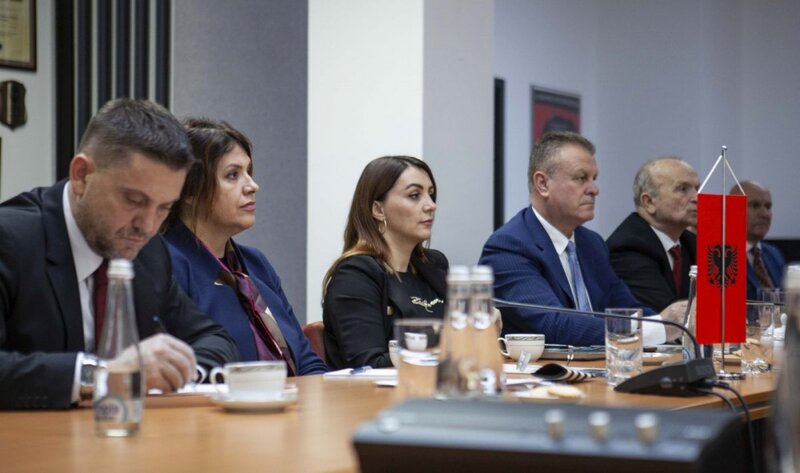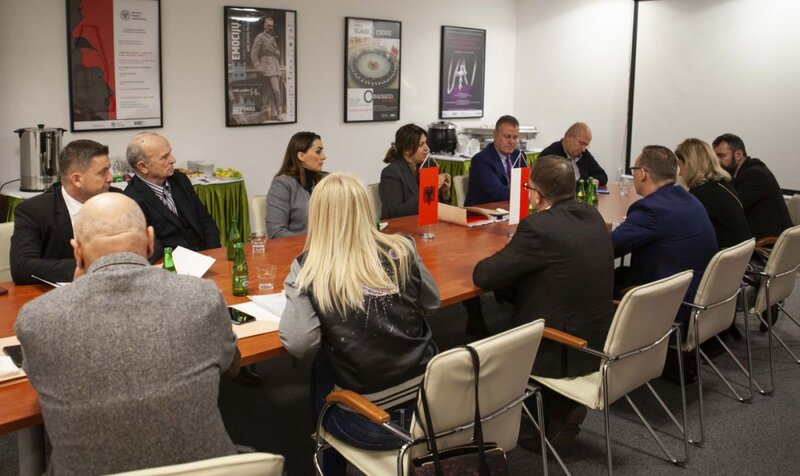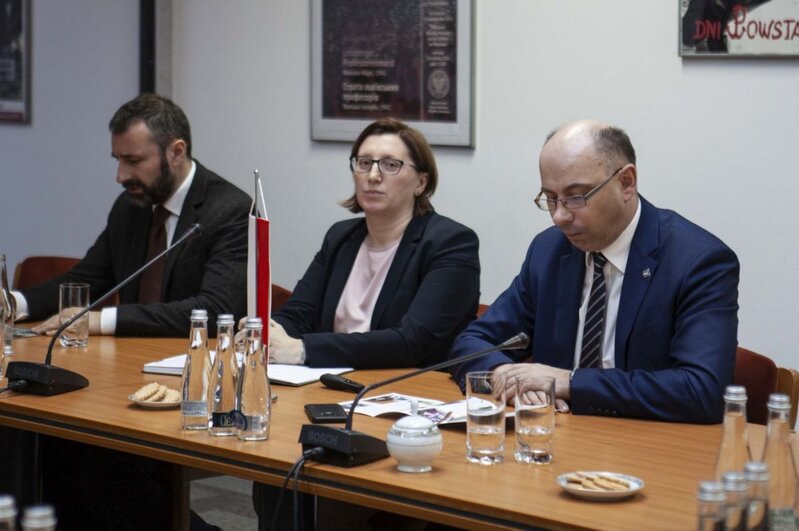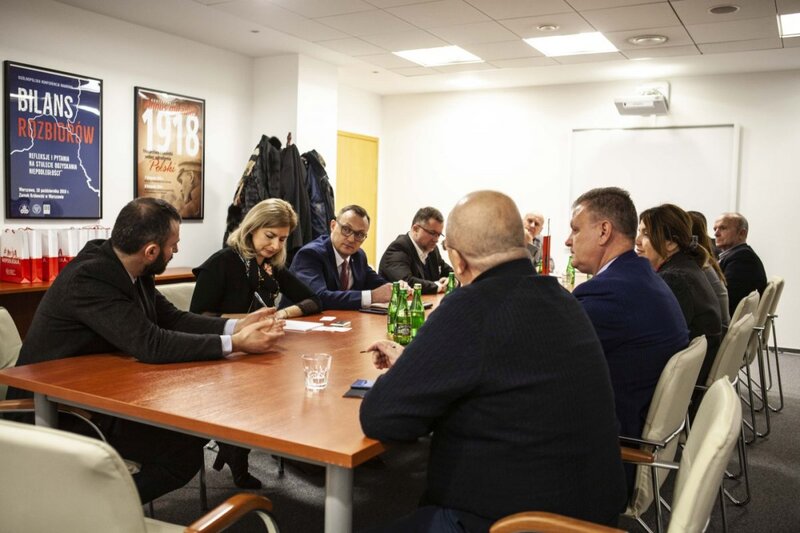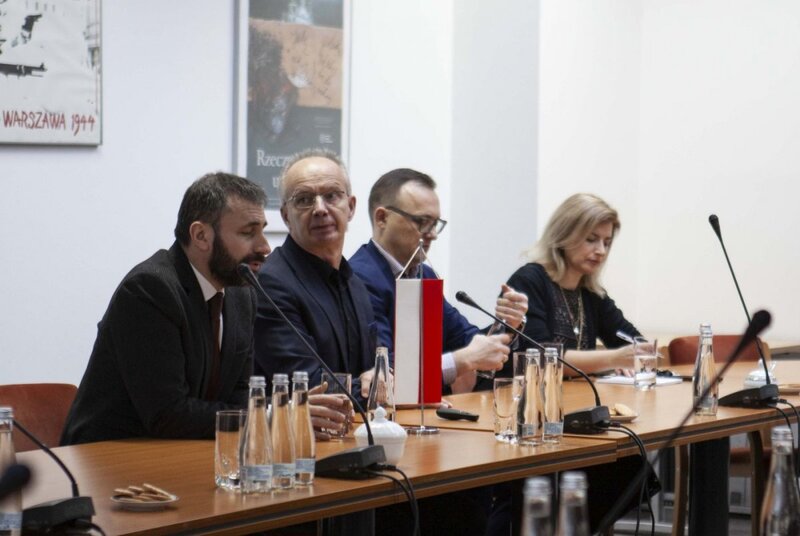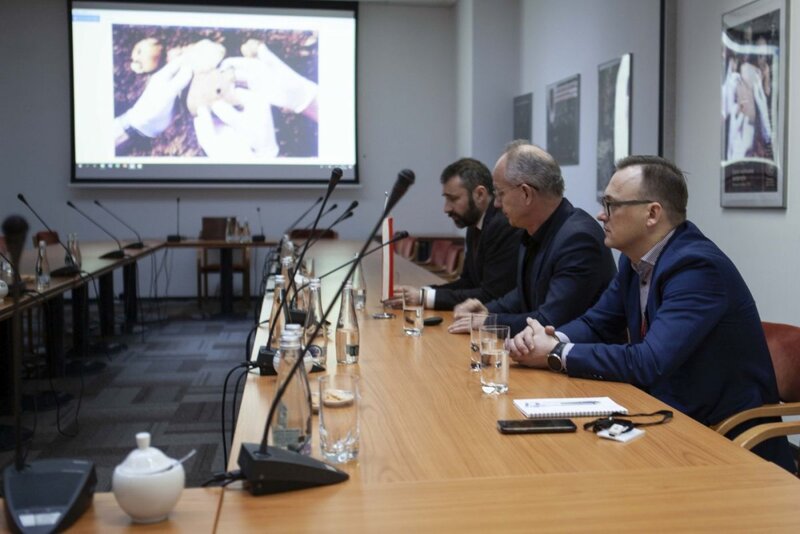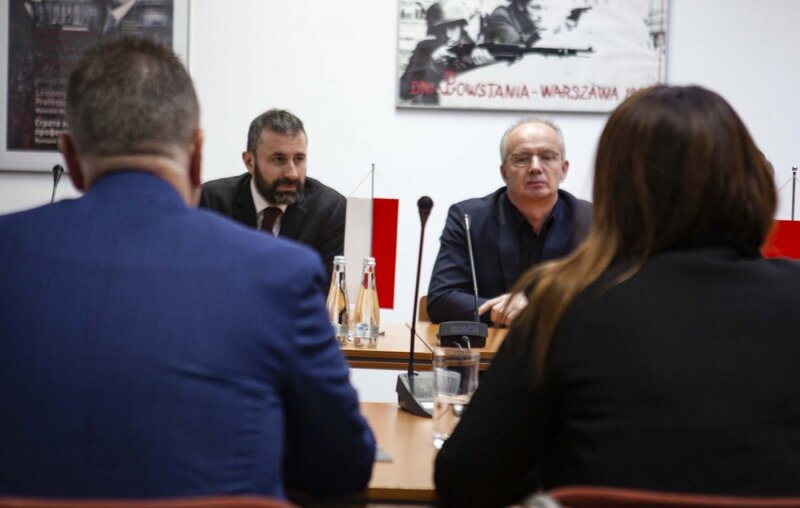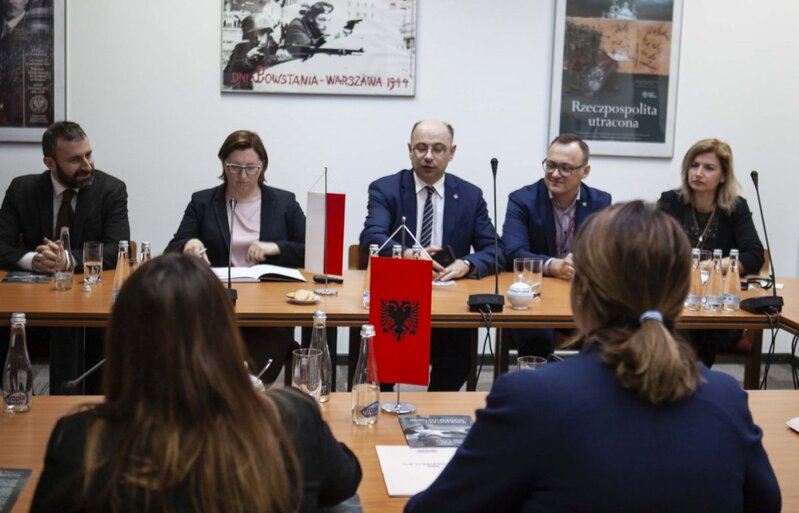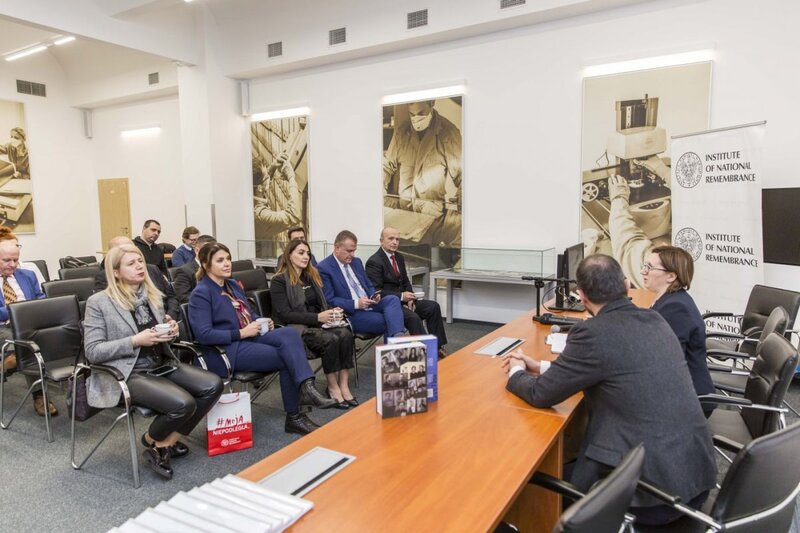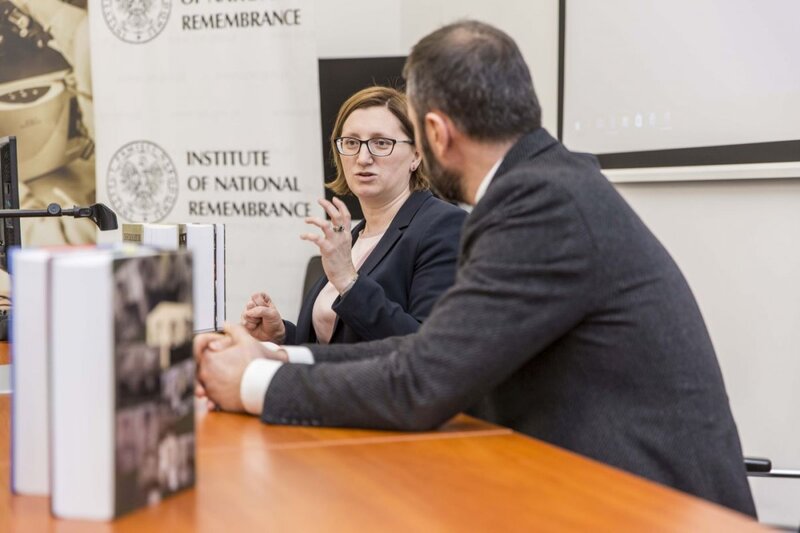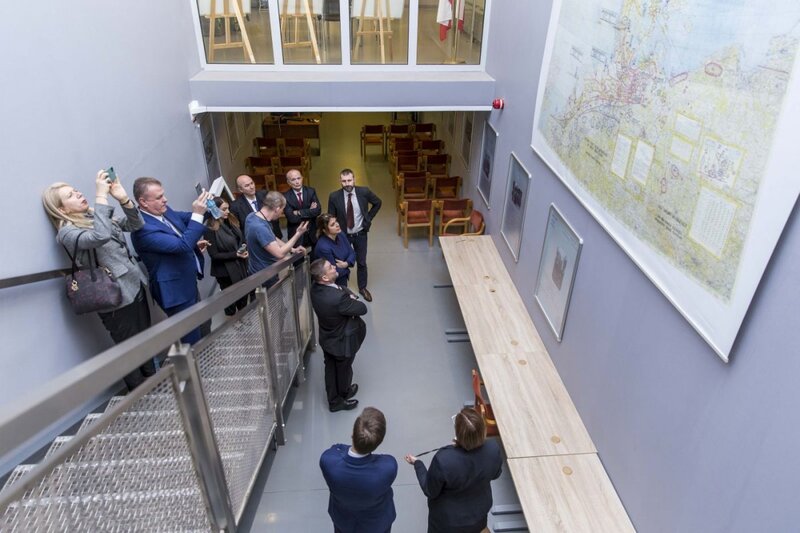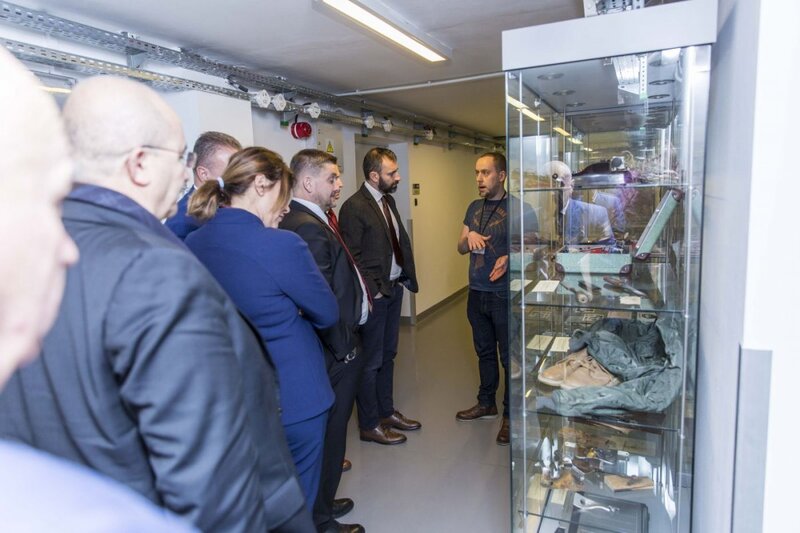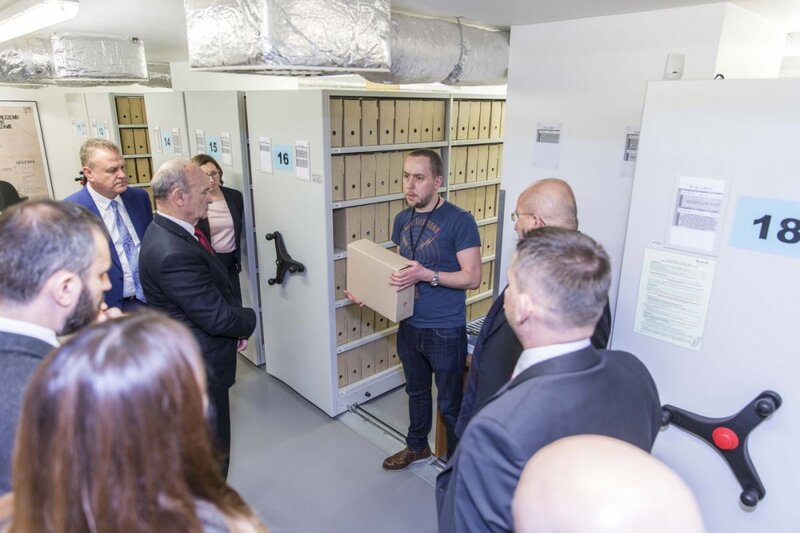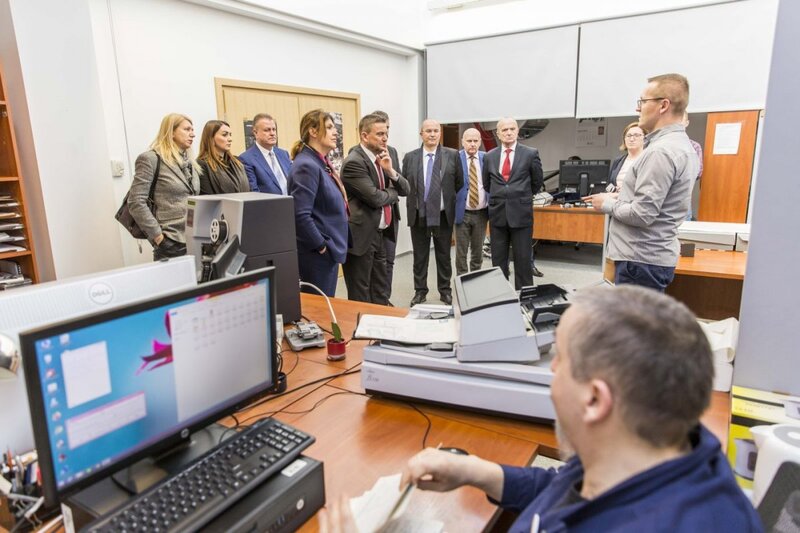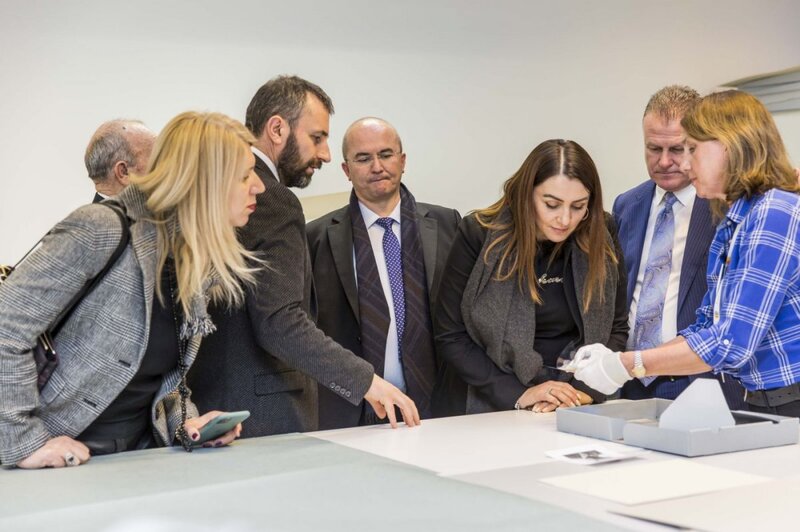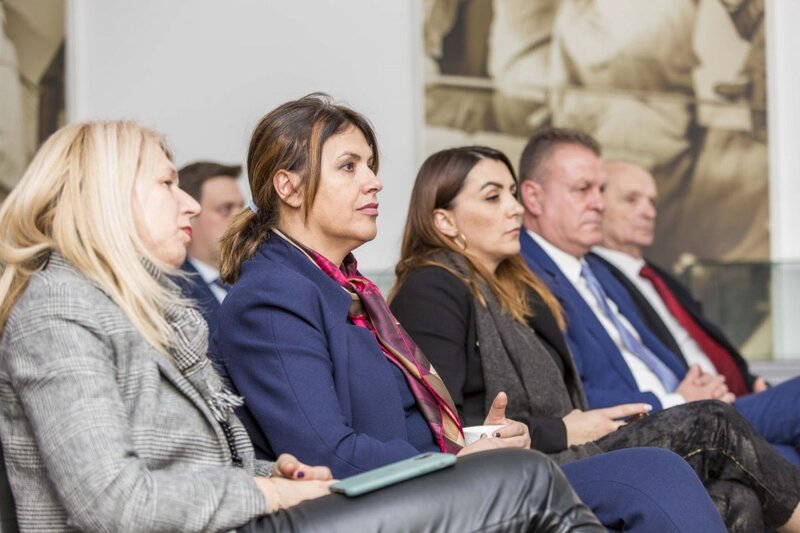The Albanian delegation composed of : Gentiana Sula (Chairwoman of the Albanian Authority), Simon Mirakaj, Altin Hoxha, Marenglen Kasmi, Skender Vrioni, Mirela Lame, as well as Artemis Malo and Edmond Leka (Albanian MPs) met with the Deputy President of the Institute of National Remembrance Dr Mateusz Szpytmą and the Director of the IPN Archive Marzena Kruk, Dr Rafał Leśkiewicz (plenipotentiary of the President of the IPN for conducting research on terror in occupied Poland in the years 1939-1945, IPN’s Historical Research Office) and Agnieszka Jędrzak, head of the IPN’s Division of International Information and Relations.
President Szpytma presented the structure of the Institute and the way in which it evolved with regard to the necessity of settlements of both German and communist crimes and new tasks undertaken by the Institute of National Remembrance in recent years. The Institute was established on the model of the German Gauck Institute, based on the prosecutorial department and the archive, which took over archival materials of the former Main Commission for the Investigation of Nazi Crimes in Poland and the files of communist services. At the parliamentary stage, a joint scientific and educational division, currently functioning as two separate offices, was created. In 2007, the Institute included the Vetting Office, and in 2016 the Office of Search and Identification and the Office for Commemorating the Struggle and Martyrdom, which issues opinions on commemorations related to the history of the 20th century and takes care of the graves of Polish soldiers in Poland and abroad as well as the graves of soldiers from other countries who died on Polish soil.
In talks with the Albanian partners, President Szpytma pointed to the key role of education in shaping the awareness of societies and building national identity in a democratic state. He further spoke about educational projects such as workshops, exhibitions, catalogues and thematic publications.
The guests from Albania also met with Deputy President of the IPN prof. Krzysztof Szwagrzyk, who gave a presentation on the search for the victims of Stalinism, conducted by the Office of Search and Identification. Deputy President Szwagrzyk presented the profiles of Polish heroes Danuta Siedzikówna "Inka" and Henryk Flame "Bartek", whose tragic fate became a symbol of the entire wartime generation. He pointed to the similarity between Poland and Albania in terms of repression towards the anti-communist underground after 1945.
The Albanian guests were very interested in the documentation of the works carried out by the Office of Search and Identification on Lot ”Ł”, the so- called Łączka of the Powązki Military Cemetery in Warsaw as well as in the former Stalinist prison on Rakowiecka street. In 2019, the Office of Search and Identification headed by President Szwagrzyk carried out works in 72 locations both in Poland and abroad. The works were conducted with the substantial participation of numerous volunteers. The members of the delegation enquired about the role of archival materials - documents and witness’ accounts - in selecting the possible burial places of the victims of the regime.
The next point of the visit was a tour of the IPN Archive where the visitors were acquainted with the archival resources and activities of this department.
The delegation also visited the IPN’s Historical Research Office, where they took part in a meeting with its Deputy Director Dr Jerzy Bednarek, Dr Rafał Leśkiewicz and the head of the Division of International Information and Relations Agnieszka Jędrzak. The guests emphasized that they saw the IPN as a model of a successful institution and that they would like to implement its solutions and know-how in Albania. The guests also enquired about Polish legislation and discussed the definitions of crimes against the Polish nation and crimes against humanity. In addition to enriching the archival resources, containing 13% of the preserved secret service files, the Albanian institute is planning to conduct scientific research on the security services. In addition, conferences and publications are organized.
The visit took place following talks between representatives of the Polish and Albanian Institutes during the last annual meeting of the members of the Platform of European Memory and Conscience, of which the Institute of National Remembrance is one of the 21 founding members. The Albanian AIDSSH is currently an observer member.
